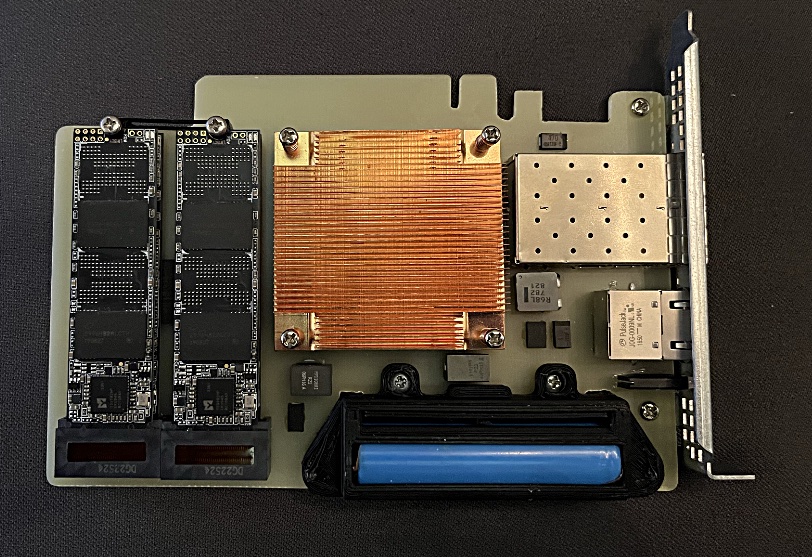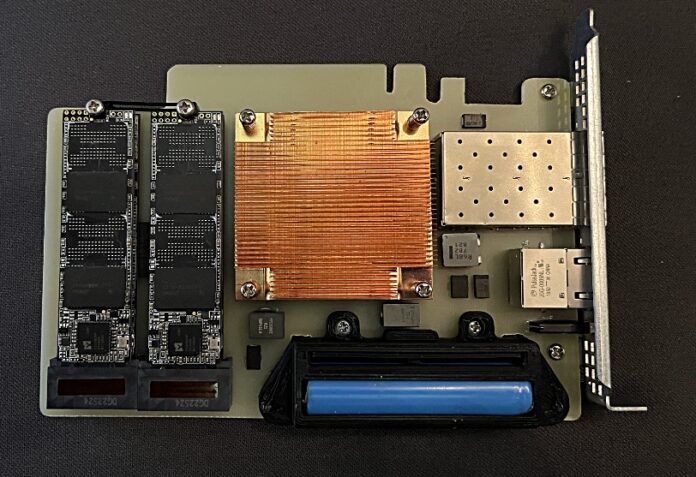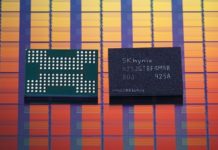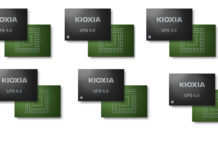Nebulon has developed a Data Processing Unit (DPU) specifically for edge servers, enabling their CPUs to fully focus on running applications.
A couple of weeks after launching its Medusa2 DPU for datacenter servers, Nebulon unveiled a prototype of the physically smaller Medusa2i card at a TechLive event in London. DPUs take care of storage, network, security, and management functions for host x86 servers, releasing CPU cycles for app processing. Nebulon developed its Medusa2 DPU from an earlier SPU (Services Processing Unit) focused on server management and security.
Interestingly, Nebulon positions its Medusa2 card as a way of having servers that compete with hyperconverged infrastructure (HCI) systems running vSphere/vSAN or KVM. In Nebulon COO and co-founder Craig Nunes’ view, “3-tier enterprise customers are adopting servers plus DPUs, basically skipping over HCI.”
We asked if DPUs could be used to build a more efficient HCI system and Nunes agreed. “One hundred percent,” he said, noting that “a software stack would be needed.”
Technical director Phil Hooker said: “The DPU is connected to storage drives in server (like SPU cards). There’s no RAID card – we replace it. Ninety percent of customers use us as a boot device.”

He said the Medusa2i card was, like Medusa2, based on Nvidia’s BlueField3 technology, but has half the CPU cores (8 instead of 16) and half the memory of Medusa2 (24 instead of 48GB), and is physically smaller. It can carry 4 x M.2 SSDs with 2-32 TB capacity.
The interest in developing it was sparked by Nebulon’s four server OEMs – Dell, HPE, Lenovo, and Supermicro. They envisaged non-rackmount server use cases enabling edge and remote sites to get the same storage, networking, and CPU offload benefits as well as remote fleet management. Nebulon started developing Medusa2i about a quarter after Medusa2 development began.
Nunes pointed out that an edge server so equipped could have no local storage apart from what’s on the Medusa2i card, and that makes it effectively a hyperconverged system.
Nebulon has a 4-port Medusa2 card coming, doubling bandwidth to 400 Gbps from an initial 2-port x 200Gbps. Nunes added that applications or other software could run on the Medusa2’s Arm cores.
He reckons interest in Medusa2 “is off the chart.” The card is currently assembled in the US, but if volumes surpass the 10,000 units level off-shore manufacturing could become a possibility.
Comment
Nebulon is at a crossing-the-chasm moment. If its OEMs start selling large numbers of Nebulon DPU-equipped servers because their enterprise customers see the benefits of more application code cycles, lower licensing costs, enhanced security, and better server management, the company could face a step change in its fortunes.








